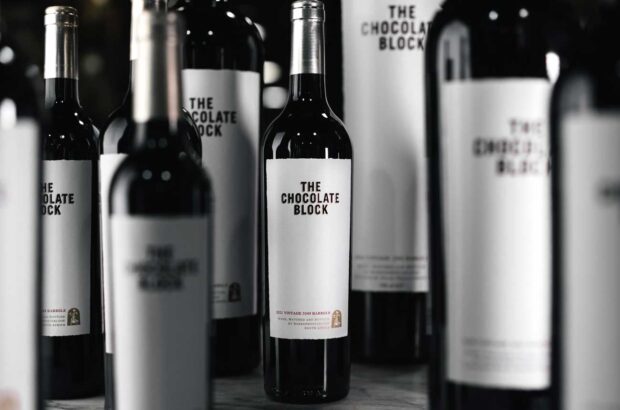‘Family owned’ is often presented as a badge of honour in introducing a winery or estate, a little like ‘old vines’ or ‘special cuvée’ on a wine label. It’s a tool regularly used when selling wine to consumers – that being family owned equates to higher values and a commitment to better quality.
The concepts of pride of ownership, legacy, continuity and longevity (rather than instant gratification) are deeply engaging. They speak to our core humanity and desire for perpetuity. Story is all, and a story about real people is likely to generate a more visceral audience reaction – and a more compelling reason to buy a wine – than a tale of soil, clones or rootstocks.
Scroll down for Clare Tooley MW’s selection of wines that celebrate California family farming
{"content":"PHA+SXQgaXMgcGxlYXNpbmdseSBpcm9uaWMsIHRoZXJlZm9yZSwgdGhhdCBub3Qgb25seSBpcyA8c3Ryb25nPjxhIGhyZWY9Imh0dHBzOi8vd3d3LmRlY2FudGVyLmNvbS93aW5lL3dpbmUtcmVnaW9ucy9jYWxpZm9ybmlhLXdpbmUtcmVnaW9uLyI+Q2FsaWZvcm5pYTwvYT48L3N0cm9uZz4gZmFtaWx5IGZhcm1pbmcgYSBwcm9kdWN0IG9mIGhpc3RvcnkgcmF0aGVyIHRoYW4gbWFya2V0aW5nLCBidXQgdGhhdCBtYW55IG9mIGl0cyB3aW5lIGZhbWlsaWVzIGhhdmUgcHV0IHRoZSBsYW5kIOKAkyB0aGVpciBzb2lsIHJhdGhlciB0aGFuIHRoZWlyIGZhbWlseSB0cmVlIOKAkyBhdCB0aGUgaGVhcnQgb2YgdGhlaXIgZW5kZWF2b3VyLjwvcD4KPHA+SW5kaXZpZHVhbHMsIGZhbWlsaWVzIG9yIHBhcnRuZXJzaGlwIGNvbnRpbnVlIHRvIG93biB0aGUgZ3JlYXQgbWFqb3JpdHkgb2YgQ2FsaWZvcm5pYSBmYXJtcyBhbmQgcmFuY2hlcy4gVGhpcyBpcyBhIGRpcmVjdCByZXN1bHQgb2YgdGhlIHN0YXRl4oCZcyBwcm9zcGVjdGluZyBhbmQgaW1taWdyYW50IGhpc3RvcnkuIFRoZSBzYW1lIGlzIHRydWUgb2YgaXRzIGdyYXBlIGdyb3dpbmcgYW5kIHdpbmVtYWtpbmcgaW5kdXN0cnkuPC9wPgo8ZGl2IGlkPSJhdHRhY2htZW50XzQ2NjI4NCIgc3R5bGU9IndpZHRoOiA2NDBweCIgY2xhc3M9IndwLWNhcHRpb24gYWxpZ25ub25lIj48aW1nIGZldGNocHJpb3JpdHk9ImhpZ2giIGRlY29kaW5nPSJhc3luYyIgYXJpYS1kZXNjcmliZWRieT0iY2FwdGlvbi1hdHRhY2htZW50LTQ2NjI4NCIgY2xhc3M9Imxhenlsb2FkIGJsdXItdXAgc2l6ZS1sYXJnZSB3cC1pbWFnZS00NjYyODQiIGRhdGEtcHJvY2Vzc2VkIHNyYz0iaHR0cHM6Ly93d3cuZGVjYW50ZXIuY29tL3dwLWNvbnRlbnQvdGhlbWVzL3NpbWJhLXRoZW1lL2Fzc2V0cy9pbWFnZXMvcGxhY2Vob2xkZXIucG5nIiBkYXRhLXNyYz0iaHR0cHM6Ly9rZXlhc3NldHMudGltZWluY3VrLm5ldC9pbnNwaXJld3AvbGl2ZS93cC1jb250ZW50L3VwbG9hZHMvc2l0ZXMvMzQvMjAyMS8xMC9HdW5kbGFjaC1CdW5kc2NodS02MzB4NDE3LmdpZiIgYWx0PSJHdW5kbGFjaC1CdW5kc2NodSIgd2lkdGg9IjYzMCIgaGVpZ2h0PSI0MTciIGRhdGEtc2l6ZXM9ImF1dG8iIGRhdGEtc3Jjc2V0PSJodHRwczovL2tleWFzc2V0cy50aW1laW5jdWsubmV0L2luc3BpcmV3cC9saXZlL3dwLWNvbnRlbnQvdXBsb2Fkcy9zaXRlcy8zNC8yMDIxLzEwL0d1bmRsYWNoLUJ1bmRzY2h1LTYzMHg0MTcuZ2lmIDYzMHcsIGh0dHBzOi8va2V5YXNzZXRzLnRpbWVpbmN1ay5uZXQvaW5zcGlyZXdwL2xpdmUvd3AtY29udGVudC91cGxvYWRzL3NpdGVzLzM0LzIwMjEvMTAvR3VuZGxhY2gtQnVuZHNjaHUtMzAweDE5OC5naWYgMzAwdywgaHR0cHM6Ly9rZXlhc3NldHMudGltZWluY3VrLm5ldC9pbnNwaXJld3AvbGl2ZS93cC1jb250ZW50L3VwbG9hZHMvc2l0ZXMvMzQvMjAyMS8xMC9HdW5kbGFjaC1CdW5kc2NodS0xMzV4ODkuZ2lmIDEzNXcsIGh0dHBzOi8va2V5YXNzZXRzLnRpbWVpbmN1ay5uZXQvaW5zcGlyZXdwL2xpdmUvd3AtY29udGVudC91cGxvYWRzL3NpdGVzLzM0LzIwMjEvMTAvR3VuZGxhY2gtQnVuZHNjaHUtMzIweDIxMi5naWYgMzIwdywgaHR0cHM6Ly9rZXlhc3NldHMudGltZWluY3VrLm5ldC9pbnNwaXJld3AvbGl2ZS93cC1jb250ZW50L3VwbG9hZHMvc2l0ZXMvMzQvMjAyMS8xMC9HdW5kbGFjaC1CdW5kc2NodS02MjB4NDEwLmdpZiA2MjB3LCBodHRwczovL2tleWFzc2V0cy50aW1laW5jdWsubmV0L2luc3BpcmV3cC9saXZlL3dwLWNvbnRlbnQvdXBsb2Fkcy9zaXRlcy8zNC8yMDIxLzEwL0d1bmRsYWNoLUJ1bmRzY2h1LTkyMHg2MDkuZ2lmIDkyMHcsIGh0dHBzOi8va2V5YXNzZXRzLnRpbWVpbmN1ay5uZXQvaW5zcGlyZXdwL2xpdmUvd3AtY29udGVudC91cGxvYWRzL3NpdGVzLzM0LzIwMjEvMTAvR3VuZGxhY2gtQnVuZHNjaHUtMTIyMHg4MDcuZ2lmIDEyMjB3IiBzaXplcz0iKG1heC13aWR0aDogNjMwcHgpIDEwMHZ3LCA2MzBweCIgLz48cCBpZD0iY2FwdGlvbi1hdHRhY2htZW50LTQ2NjI4NCIgY2xhc3M9IndwLWNhcHRpb24tdGV4dCI+U2l4dGgtZ2VuZXJhdGlvbiB2aW50bmVycyBKZWZmIGFuZCBLYXRpZSBCdW5kc2NodSBvZiBHdW5kbGFjaCBCdW5kc2NodSwgd2hvc2UgZmFtaWx5IGhhcyBiZWVuIGZhcm1pbmcgdGhlaXIgUmhpbmVmYXJtIHZpbmV5YXJkIGluIFNvbm9tYSBzaW5jZSAxODU4LjwvcD48L2Rpdj4KPHA+PGRpdiBjbGFzcz0iYWQtY29udGFpbmVyIGFkLWNvbnRhaW5lci0tbW9iaWxlIj48ZGl2IGlkPSJwb3N0LWlubGluZS0yIiBjbGFzcz0iaXBjLWFkdmVydCI+PC9kaXY+PC9kaXY+PC9wPgo8cD5Tb21lIDk1JSBvZiA8c3Ryb25nPjxhIGhyZWY9Imh0dHBzOi8vd3d3LmRlY2FudGVyLmNvbS93aW5lL3dpbmUtcmVnaW9ucy9uYXBhLXZhbGxleS8iPk5hcGE8L2E+PC9zdHJvbmc+IHdpbmVyaWVzIGFyZSBmYW1pbHkgb3duZWQsIDxzdHJvbmc+PGEgaHJlZj0iaHR0cHM6Ly93d3cuZGVjYW50ZXIuY29tL3dpbmUvd2luZS1yZWdpb25zL3Nvbm9tYS8iPlNvbm9tYTwvYT48L3N0cm9uZz4gaXMgaG9tZSB0byB0aGUgc3RhdGXigJlzIGxvbmdlc3QgY29udGludW91c2x5IG9wZXJhdGVkIGZhbWlseSB3aW5lcnkgaW4gR3VuZGxhY2ggQnVuZHNjaHUsIGFuZCB0aGUgPHN0cm9uZz48YSBocmVmPSJodHRwczovL3d3dy5kZWNhbnRlci5jb20vd2luZS10cmF2ZWwvZ3JlYXQtd2luZS1yb3V0ZS1jYWxpZm9ybmlhcy1jZW50cmFsLWNvYXN0LTI0OTIwNC8iPkNlbnRyYWwgQ29hc3Q8L2E+PC9zdHJvbmc+IHdpbmUgc2NlbmUgdGhyaXZlcyBvbiBmYW1pbHkgb3BlcmF0aW9ucy4gRnVydGhlcm1vcmUsIOKAmGZhbWlseSBvd25lZOKAmSBpbiBDYWxpZm9ybmlhIGVuY29tcGFzc2VzIGFsbCBzaXplcywgYWxsIHR1cm5vdmVycyBhbmQgYWxsIGhpZXJhcmNoaWVzIG9mIHF1YWxpdHkuPC9wPgo8cD5FJmFtcDtKIEdhbGxvLCA8c3Ryb25nPjxhIGhyZWY9Imh0dHBzOi8vd3d3LmRlY2FudGVyLmNvbS9wcmVtaXVtL3ByZW1pdW0taG9tZS9wcm9kdWNlci1wcm9maWxlLXRyaW5jaGVyby1mYW1pbHktZXN0YXRlcy00MzUzMTcvIj5UcmluY2hlcm88L2E+PC9zdHJvbmc+IGFuZCBKYWNrc29uIGFyZSBmYW1pbHkgb3BlcmF0aW9ucywgdG9nZXRoZXIgcmVwcmVzZW50aW5nIGEgc2lnbmlmaWNhbnQgcGVyY2VudGFnZSBvZiBDYWxpZm9ybmlh4oCZcyB3aW5lIHByb2R1Y3Rpb24uIFRoZXkgZG9taW5hdGUgdGhlIGdyb2Nlcnkgc2hlbHZlcyB3aXRoIGV2ZXJ5ZGF5IGJyYW5kcywgd2hpbGUgc2ltdWx0YW5lb3VzbHkgbnVydHVyaW5nIGFuZCBpbnZlc3RpbmcgaW4gdGhlaXIgb3duIGFuZCBwYXJ0bmVyZWQgcHJlbWl1bSB3aW5lcmllcywgaW5jbHVkaW5nIExvdWlzIE0gTWFydGluaSwgTmV5ZXJzIFZpbmV5YXJkcyBhbmQgVsOpcml0w6kgcmVzcGVjdGl2ZWx5LjwvcD4KPGgzPkFsbCBpbiB0aGUgZmFtaWx5PC9oMz4KPHA+VGhlIGdvb2QgbmV3cyBpcyBDYWxpZm9ybmlhIGZhbWlseSB3aW5lcmllcyBhcmUgaGVyZSB0byBzdGF5LCBhdCBsZWFzdCB1bnRpbCB0aGUgdGVjdG9uaWMgcGxhdGVzIHNoaWZ0IGRlY2lzaXZlbHkuIEZhbWlseSBmYXJtaW5nIGJlZ2V0cyBmYW1pbHkgZmFybWluZy48L3A+CjxkaXYgY2xhc3M9ImFkLWNvbnRhaW5lciBhZC1jb250YWluZXItLW1vYmlsZSI+PGRpdiBpZD0icG9zdC1pbmxpbmUtMyIgY2xhc3M9ImlwYy1hZHZlcnQiPjwvZGl2PjwvZGl2Pgo8cD5DbGF1ZGlhIFNjaHVnIHJlY29sbGVjdHMgdGhhdCBhcyBhIGNoaWxkIHdhdGNoaW5nIGhlciBmYXRoZXIsIFdhbHRlciwgbGVhdmUgdGhlIGhvdXNlLCBzaGUgbmV2ZXIgdGhvdWdodCBoZSB3YXMg4oCYZ29pbmcgdG8gd29ya+KAmSB1bmRlciB0aGUgUGhlbHBzIG93bmVyc2hpcCBbV2FsdGVyIFNjaHVnIHdhcyB0aGUgZm91bmRpbmcgd2luZW1ha2VyIGZvciA8c3Ryb25nPjxhIGhyZWY9Imh0dHBzOi8vd3d3LmRlY2FudGVyLmNvbS9wcmVtaXVtL2pvc2VwaC1waGVscHMtdmluZXlhcmRzLXByb2R1Y2VyLXByb2ZpbGUtNDQyNDQwLyI+Sm9zZXBoIFBoZWxwczwvYT48L3N0cm9uZz5dLiBTaGUganVzdCB0aG91Z2h0IG9mIGhpbSBzcGVuZGluZyB0aGUgZGF5IHdpdGggdGhlIGV4dGVuZGVkIGZhbWlseSDigJMgYSBjaXJjbGUgc2hlIHRvbyBqb2luZWQgZWFybHkgb24uIFdoZW4gV2FsdGVyIGxlZnQgdG8gYnV5IGhpcyBvd24gdmluZXlhcmQgYW5kIHdpbmVyeSBpbiAxOTgwLCBpdCB3YXMgYSBuYXR1cmFsIGNvbnRpbnVhdGlvbiByYXRoZXIgdGhhbiBhIGRlcGFydHVyZS48L3A+CjxwPkZhbWlsaWVzIHdpdGhpbiBmYW1pbHkgb3duZXJzaGlwcyBhcmUgYWxzbyBhIGZlYXR1cmUgb2YgQ2FsaWZvcm5pYSB3aW5lIGZhcm1pbmcuIEZhdGhlciBhbmQgc29uIEpvc8OpIGFuZCBKdWFuIFJleWVzIGhlYWQgdXAgdGhlIHdpbmVtYWtpbmcgdGVhbSBvZiBwcml2YXRlbHkgb3duZWQgQ3J1IHdpbmVyeSBpbiBNYWRlcmEuIFN1Y2ggaW5oZXJpdGFuY2Ugb2YgbGVhcm5lZCBleHBlcmllbmNlIGFuZCB3aXNkb20gZW5zdXJlcyBjb250aW51aXR5IGluIHRoZSBjZWxsYXIgYnV0IGFsc28gZW5zdXJlcyBhIGNvbnRpbnVlZCB1bmRlcnN0YW5kaW5nIG9mIGhvdyBwYXJ0aWN1bGFyIHZpbmV5YXJkcyBpbiBwYXJ0aWN1bGFyIHBsYWNlcyBldm9sdmUgb3ZlciB0aW1lLjwvcD4KPGRpdiBjbGFzcz0iYWQtY29udGFpbmVyIGFkLWNvbnRhaW5lci0tbW9iaWxlIj48ZGl2IGlkPSJwb3N0LWlubGluZS00IiBjbGFzcz0iaXBjLWFkdmVydCI+PC9kaXY+PC9kaXY+CjxkaXYgaWQ9ImF0dGFjaG1lbnRfNDY2MjkzIiBzdHlsZT0id2lkdGg6IDY0MHB4IiBjbGFzcz0id3AtY2FwdGlvbiBhbGlnbm5vbmUiPjxpbWcgZGVjb2Rpbmc9ImFzeW5jIiBhcmlhLWRlc2NyaWJlZGJ5PSJjYXB0aW9uLWF0dGFjaG1lbnQtNDY2MjkzIiBjbGFzcz0ibGF6eWxvYWQgYmx1ci11cCBzaXplLWxhcmdlIHdwLWltYWdlLTQ2NjI5MyIgZGF0YS1wcm9jZXNzZWQgc3JjPSJodHRwczovL3d3dy5kZWNhbnRlci5jb20vd3AtY29udGVudC90aGVtZXMvc2ltYmEtdGhlbWUvYXNzZXRzL2ltYWdlcy9wbGFjZWhvbGRlci5wbmciIGRhdGEtc3JjPSJodHRwczovL2tleWFzc2V0cy50aW1laW5jdWsubmV0L2luc3BpcmV3cC9saXZlL3dwLWNvbnRlbnQvdXBsb2Fkcy9zaXRlcy8zNC8yMDIxLzEwL0FuZHJlYS1DbGF1ZGlhLUF4ZWwtU2NodWctNjMweDQxNy5naWYiIGFsdD0iQW5kcmVhLUNsYXVkaWEtYW5kLUF4ZWwtU2NodWciIHdpZHRoPSI2MzAiIGhlaWdodD0iNDE3IiBkYXRhLXNpemVzPSJhdXRvIiBkYXRhLXNyY3NldD0iaHR0cHM6Ly9rZXlhc3NldHMudGltZWluY3VrLm5ldC9pbnNwaXJld3AvbGl2ZS93cC1jb250ZW50L3VwbG9hZHMvc2l0ZXMvMzQvMjAyMS8xMC9BbmRyZWEtQ2xhdWRpYS1BeGVsLVNjaHVnLTYzMHg0MTcuZ2lmIDYzMHcsIGh0dHBzOi8va2V5YXNzZXRzLnRpbWVpbmN1ay5uZXQvaW5zcGlyZXdwL2xpdmUvd3AtY29udGVudC91cGxvYWRzL3NpdGVzLzM0LzIwMjEvMTAvQW5kcmVhLUNsYXVkaWEtQXhlbC1TY2h1Zy0zMDB4MTk4LmdpZiAzMDB3LCBodHRwczovL2tleWFzc2V0cy50aW1laW5jdWsubmV0L2luc3BpcmV3cC9saXZlL3dwLWNvbnRlbnQvdXBsb2Fkcy9zaXRlcy8zNC8yMDIxLzEwL0FuZHJlYS1DbGF1ZGlhLUF4ZWwtU2NodWctMTM1eDg5LmdpZiAxMzV3LCBodHRwczovL2tleWFzc2V0cy50aW1laW5jdWsubmV0L2luc3BpcmV3cC9saXZlL3dwLWNvbnRlbnQvdXBsb2Fkcy9zaXRlcy8zNC8yMDIxLzEwL0FuZHJlYS1DbGF1ZGlhLUF4ZWwtU2NodWctMzIweDIxMi5naWYgMzIwdywgaHR0cHM6Ly9rZXlhc3NldHMudGltZWluY3VrLm5ldC9pbnNwaXJld3AvbGl2ZS93cC1jb250ZW50L3VwbG9hZHMvc2l0ZXMvMzQvMjAyMS8xMC9BbmRyZWEtQ2xhdWRpYS1BeGVsLVNjaHVnLTYyMHg0MTAuZ2lmIDYyMHcsIGh0dHBzOi8va2V5YXNzZXRzLnRpbWVpbmN1ay5uZXQvaW5zcGlyZXdwL2xpdmUvd3AtY29udGVudC91cGxvYWRzL3NpdGVzLzM0LzIwMjEvMTAvQW5kcmVhLUNsYXVkaWEtQXhlbC1TY2h1Zy05MjB4NjA5LmdpZiA5MjB3LCBodHRwczovL2tleWFzc2V0cy50aW1laW5jdWsubmV0L2luc3BpcmV3cC9saXZlL3dwLWNvbnRlbnQvdXBsb2Fkcy9zaXRlcy8zNC8yMDIxLzEwL0FuZHJlYS1DbGF1ZGlhLUF4ZWwtU2NodWctMTIyMHg4MDcuZ2lmIDEyMjB3IiBzaXplcz0iKG1heC13aWR0aDogNjMwcHgpIDEwMHZ3LCA2MzBweCIgLz48cCBpZD0iY2FwdGlvbi1hdHRhY2htZW50LTQ2NjI5MyIgY2xhc3M9IndwLWNhcHRpb24tdGV4dCI+QW5kcmVhLCBDbGF1ZGlhIGFuZCBBeGVsIFNjaHVnLCB3aG9zZSBwYXJlbnRzIFdhbHRlciBhbmQgR2VydHJ1ZCBmb3VuZGVkIHRoZWlyIGZhbWlseSB3aW5lcnkgaW4gQ2FybmVyb3MgaW4gMTk4MC48L3A+PC9kaXY+CjxwPkluIDE5ODUsIFNoYXJpIGFuZCBHYXJlbiBTdGFnbGluIGZvdW5kZWQgdGhlaXIgZXBvbnltb3VzIGZhbWlseSB2aW5leWFyZCBpbiB0aGUgTmFwYSBWYWxsZXkgb24gYSBidWNvbGljIGhvbWVzdGVhZCBidWlsdCBpbiAxODY0IGJ5IE1hcnkgYW5kIEpvaG4gU3RlY2t0ZXIsIHdobyBwbGFudGVkIDI0aGEgb2YgdmluZXMgYW5kIHJhaXNlZCBzaXggY2hpbGRyZW4uIEluIGRvaW5nIHNvLCB0aGV5IGNvbnRpbnVlZCBhIDE1MC15ZWFyIHRyYWRpdGlvbiBvZiB2aXRpY3VsdHVyZSBhdCB0aGUgUnV0aGVyZm9yZCBCZW5jaCBlc3RhdGUuPC9wPgo8ZGl2IGNsYXNzPSJhZC1jb250YWluZXIgYWQtY29udGFpbmVyLS1tb2JpbGUiPjxkaXYgaWQ9InBvc3QtaW5saW5lLTUiIGNsYXNzPSJpcGMtYWR2ZXJ0Ij48L2Rpdj48L2Rpdj4KPHA+V2hvIHdvdWxkbuKAmXQgY2hvb3NlLCBpZiBwb3NzaWJsZSwgdG8gcmFpc2UgYSBmYW1pbHkgaW4gc3VjaCBhIHBlYWNlZnVsIHNldHRpbmc\/IENhbGlmb3JuaWEgd2luZSBmYW1pbGllcyB3ZXJlIGZyZWUgdG8gY2hvb3NlIHRoZSBsaWZlc3R5bGUgYW5kIHRoZSB2aWV3LCB1bmxpa2UgdGhlIEV1cm9wZWFuIG1vZGVsIG9mIG11bHRpLWdlbmVyYXRpb25hbCBvd25lcnNoaXAgYW5kIGV2ZXItd2lkZW5pbmcgZmFtaWx5IG5ldHdvcmtzIGltcG9zZWQgYnkgTmFwb2xlb25pYyBydWxlcyBvZiBpbmhlcml0YW5jZS48L3A+CjxwPkFueW9uZSBmb3J0dW5hdGUgZW5vdWdoIHRvIHRha2UgdGhlIHJvYWQgdXAgdG8gQ2hhcHBlbGxldCBvbiBQcml0Y2hhcmQgSGlsbCBhbmQgd2F0Y2ggdGhlIHN1bnJpc2Ugb3Igc3Vuc2V0IGZyb20gaXRzIHZhbnRhZ2UgcG9pbnQsIG9yIHNpdCBpbiBNb2xseSBDaGFwcGVsbGV04oCZcyBnYXJkZW4gb2YgYWJzb2x1dGUgYmVhdXR5IGFuZCB0cmFucXVpbGl0eSwgd2lsbCByZWNvZ25pc2UgdGhlIGNhbGxpbmcuPC9wPgo8aDM+Rm91bmRpbmcgbW90aGVycyBhbmQgZmF0aGVyczwvaDM+CjxwPkhvd2V2ZXIsIHRoZSBtYXRyaWFyY2hzIGFuZCBwYXRyaWFyY2hzIHdob3NlIGZhbWlsaWVzIGhhdmUgYWNoaWV2ZWQgcmVhbCBxdWFsaXR5IGluIGJvdGggZmFybWluZyBhbmQgd2luZW1ha2luZyDigJMgcGVvcGxlIGxpa2UgTW9sbHkgYW5kIDxzdHJvbmc+PGEgaHJlZj0iaHR0cHM6Ly93d3cuZGVjYW50ZXIuY29tL3dpbmUtbmV3cy9vYml0dWFyeS1kb25uLWNoYXBwZWxsZXQtMzA1MzQzLyI+RG9ubiBDaGFwcGVsbGV0PC9hPjwvc3Ryb25nPiwgdGhlIFN0YWdsaW5zLCB0aGUgU2NodWdzLCB0aGUgPHN0cm9uZz48YSBocmVmPSJodHRwczovL3d3dy5kZWNhbnRlci5jb20vcHJlbWl1bS90cmVmZXRoZW4tcHJvZmlsZS13aW5lLXJhdGluZ3MtMzg4MTY5LyI+VHJlZmV0aGVuczwvYT48L3N0cm9uZz4sIHRoZSBOb3Zha3MsIHRoZSBEdXNpcyBhbmQgdGhlIE1pbGxlcnMsIHRvIG5hbWUgYnV0IGEgc21hbGwgZmV3IOKAkyBzaGFyZSBhIGNvbW1vbiBmdW5kYW1lbnRhbCBiZWxpZWYuPC9wPgo8cD5JdOKAmXMgYSBiZWxpZWYgdGhhdCwgd2l0aCBwYXRpZW5jZSwgdGhlIGxhbmQgdGhleSBjaG9zZSB0byBmYXJtIHdhcywgYW5kIHN0aWxsIGlzLCBjYXBhYmxlIG9mIHByb2R1Y2luZyBleGNlbGxlbmNlLiBUaGV5IGNvbW1pdHRlZCB0byB0aGVpciBsYW5kIGFuZCB0byBpdHMgZ2VuZXJhdGlvbmFsIHN0ZXdhcmRzaGlwLCByZWNvZ25pc2luZyB0aGF0IHNvd2luZyB0b2RheSB3b3VsZCBiZSByZWFwaW5nIGZvciBtdWx0aS1nZW5lcmF0aW9uYWwgdG9tb3Jyb3dzLjwvcD4KPGRpdiBpZD0iYXR0YWNobWVudF80NjYyOTciIHN0eWxlPSJ3aWR0aDogNjA1cHgiIGNsYXNzPSJ3cC1jYXB0aW9uIGFsaWdubm9uZSI+PGltZyBkZWNvZGluZz0iYXN5bmMiIGFyaWEtZGVzY3JpYmVkYnk9ImNhcHRpb24tYXR0YWNobWVudC00NjYyOTciIGNsYXNzPSJsYXp5bG9hZCBibHVyLXVwIHNpemUtZnVsbCB3cC1pbWFnZS00NjYyOTciIGRhdGEtcHJvY2Vzc2VkIHNyYz0iaHR0cHM6Ly93d3cuZGVjYW50ZXIuY29tL3dwLWNvbnRlbnQvdGhlbWVzL3NpbWJhLXRoZW1lL2Fzc2V0cy9pbWFnZXMvcGxhY2Vob2xkZXIucG5nIiBkYXRhLXNyYz0iaHR0cHM6Ly9rZXlhc3NldHMudGltZWluY3VrLm5ldC9pbnNwaXJld3AvbGl2ZS93cC1jb250ZW50L3VwbG9hZHMvc2l0ZXMvMzQvMjAyMS8xMC9EdWNraG9ybi1DaGFwcGVsbGV0LU5vdmFrLmdpZiIgYWx0PSJNYXJnYXJldER1Y2tob3JuLU1vbGx5Q2hhcHBlbGxldC1NYXJ5Tm92YWsiIHdpZHRoPSI1OTUiIGhlaWdodD0iMzkzIj48cCBpZD0iY2FwdGlvbi1hdHRhY2htZW50LTQ2NjI5NyIgY2xhc3M9IndwLWNhcHRpb24tdGV4dCI+TW9sbHkgQ2hhcHBlbGxldCwgY2VudHJlLCB3aXRoIGZlbGxvdyBOYXBhIG1hdHJpYXJjaHMgTWFyZ2FyZXQgRHVja2hvcm4gKGxlZnQpIGFuZCA8c3Ryb25nPjxhIGhyZWY9Imh0dHBzOi8vd3d3LmRlY2FudGVyLmNvbS93aW5lLW5ld3Mvc3BvdHRzd29vZGUtZm91bmRlci1tYXJ5LW5vdmFrLWRpZXMtMzMyMjQyLyI+TWFyeSBOb3ZhazwvYT48L3N0cm9uZz4gb2YgU3BvdHRzd29vZGUuIDxlbT5EZWNhbnRlcjwvZW0+IHBob3RvZ3JhcGhlZCB0aGVtIHRvZ2V0aGVyIGZvciBhIG1hZ2F6aW5lIGZlYXR1cmUgaW4gMjAxNi48L3A+PC9kaXY+CjxwPlRoZXNlIGZvdW5kaW5nIG1vdGhlcnMgYW5kIGZhdGhlcnMgZGlkIG5vdCBqdXN0IGRvIGl0IGZvciB0aGVtc2VsdmVzIGFuZCB0aGVpciBmYW1pbGllcy4gVGhlIHBsYW50aW5nIG9mIHNvbWUgb2YgQ2FsaWZvcm5pYeKAmXMgbW9zdCBoaXN0b3JpYyB2aW5leWFyZHMsIHN1Y2ggYXMgRHVzaSwgQmllbiBOYWNpZG8gYW5kIFNhbmdpYWNvbW8sIGFsbCBzdGlsbCBmYW1pbHkgb3duZWQsIGhhdmUgbm90IG9ubHkgZXN0YWJsaXNoZWQgdGhlaXIgb3duZXJzIGFzIHF1YWxpdHkgcHJvZHVjZXJzLCBidXQgYWxzbyBwcm92aWRlZCB0aGUgZnJ1aXQgZm9yIGEgbXVjaCBsYXJnZXIgY29ob3J0IG9mIHRhbGVudGVkIHdpbmVtYWtlcnMgdG8gbWFrZSB0aGVpciBtYXJrLjwvcD4KPHA+VGhlIFNjaHVnIDIwMTggaXRlcmF0aW9uIG9mIFBpbm90IE5vaXIgZnJvbSB0aGUgU2FuZ2lhY29tbyB2aW5leWFyZCA8ZW0+KHNlZSB0YXN0aW5nIG5vdGUpPC9lbT4gYnVyc3RzIHdpdGggZGFyayByZWQgYW5kIGJsdWUgZnJ1aXQgYW5kIGlzIGJvdGggdmlicmFudCBhbmQgdml0YWwuIFRoZXNlIHZpbmV5YXJkcyBhbmQgdGhlaXIgZnJ1aXQsIHRyYW5zbGF0ZWQgYW5kIGNyYWZ0ZWQgaW50byBtdWx0aXBsZSB2ZXJzaW9ucywgaGF2ZSBvdmVyIHRpbWUgY2VtZW50ZWQgQ2FsaWZvcm5pYeKAmXMgY3JlZGVudGlhbHMgYXMgYSBtdWx0aS1mYWNldGVkLCBmbGV4aWJsZSwgcHJlbWl1bSB3aW5lIHJlZ2lvbi4gQnkgZXh0ZW5zaW9uLCB0aGV5IGNvbnRpbnVlIHRvIGRlbGlnaHQgYSBncm93aW5nIGF1ZGllbmNlIG9mIGludGVybmF0aW9uYWwgd2luZSBsb3ZlcnMuPC9wPgo8cD5CdXQgd2hhdCBoYXBwZW5zIHdoZW4gdGhlIG9yaWdpbmFsIHZpc2lvbmFyeSBpcyBubyBsb25nZXIgb3ZlcnNlZWluZyB0aGUgZGFpbHkgYnVzaW5lc3M\/IFRoZSBuZXh0IGdlbmVyYXRpb24gbmVlZHMgdG8gZmluZCB0aGVpciBvd24g4oCYZ2x1ZeKAmSBhbmQgdGhlaXIgb3duIGR5bmFtaWMuIFRoZSBvcmlnaW5hbCB2aXNpb24gaXMgY29uc3RhbnRseSByZXNodWZmbGluZyBpdHNlbGYgd2l0aCBlYWNoIG5ldyBzZXQgb2YgZXllcy4gU3VjY2Vzc2lvbiBiZWNvbWVzIGxlc3MgYWJvdXQgaW5oZXJpdGFuY2UgYW5kIG1vcmUgYWJvdXQgcHJvZ3Jlc3Npb24uPC9wPgo8aDM+U3VzdGFpbmFiaWxpdHkgYW5kIHBoaWxhbnRocm9weTwvaDM+CjxwPk1hbnkgb2YgdG9kYXnigJlzIGZhbWlseSBmYXJtcyBhcmUgZmluZGluZyB1bml0eSBpbiBjb25jZW50cmF0aW5nIHRoZWlyIGVmZm9ydHMgb24gZW52aXJvbm1lbnRhbCBmYWN0b3JzIHRvIHByb3RlY3Qgd2hhdCBoYXMgY29tZSB0aGVpciB3YXkuIFRoZXkgYXJlIHdvcmtpbmcgdG8gZW5zdXJlIGEgZnV0dXJlIG5vdCBqdXN0IGZvciBvbmUgZmFtaWx5IGJ1dCBmb3IgdGhlaXIgbGFuZCBhbmQsIGJ5IGV4dGVuc2lvbiwgdGhlaXIgcmVnaW9uLjwvcD4KPHA+SW4gMTk2OCwgTmFwYSBsYW5kb3duZXJzLCB2aW50bmVycyBhbmQgZ3Jvd2VycyBpbmNsdWRpbmcgR2VuZSBhbmQgS2F0aWUgVHJlZmV0aGVuIGVzdGFibGlzaGVkIHRoZSBmaXJzdCBBbWVyaWNhbiBhZ3JpY3VsdHVyYWwgcHJlc2VydmUgaW4gdGhlIHZhbGxleSwgY29tbWl0dGluZyB0aGVtc2VsdmVzIGFuZCBhbGwgd2hvIGZvbGxvd2VkIHRvIHByb3RlY3QgdGhlIGFncmFyaWFuIGNoYXJhY3RlciBhbmQgbGVhZCBpbiBhbGwgdGhpbmdzIGVudmlyb25tZW50YWwuPC9wPgo8cD5JbiAyMDIxLCBmb3VyIHdpbmUgZmFtaWxpZXMg4oCTIE\/igJlOZWlsbCwgVHJpbmNoZXJvLCBTaGFubm9uIFJpZGdlIGFuZCA8c3Ryb25nPjxhIGhyZWY9Imh0dHBzOi8vd3d3LmRlY2FudGVyLmNvbS9wcmVtaXVtL2plYW4tY2hhcmxlcy1ib2lzc2V0LWludGVydmlldy13aW5lcy10YXN0ZWQtNDYxNTEzLyI+Qm9pc3NldDwvYT48L3N0cm9uZz4g4oCTIHJlY2VpdmVkIHRoZSBDYWxpZm9ybmlhIFdpbmUgSW5zdGl0dXRl4oCZcyBHcmVlbiBNZWRhbCBBd2FyZCwgcmVjb2duaXNpbmcgYSBjb21taXRtZW50IHRvIHN1c3RhaW5hYmlsaXR5IGluIHRoZSBjYXRlZ29yaWVzIG9mIExlYWRlciwgQnVzaW5lc3MsIEVudmlyb25tZW50IGFuZCBDb21tdW5pdHkuPC9wPgo8ZGl2IGlkPSJhdHRhY2htZW50XzQ2NjI5OSIgc3R5bGU9IndpZHRoOiA2MzZweCIgY2xhc3M9IndwLWNhcHRpb24gYWxpZ25ub25lIj48aW1nIGxvYWRpbmc9ImxhenkiIGRlY29kaW5nPSJhc3luYyIgYXJpYS1kZXNjcmliZWRieT0iY2FwdGlvbi1hdHRhY2htZW50LTQ2NjI5OSIgY2xhc3M9Imxhenlsb2FkIGJsdXItdXAgd3AtaW1hZ2UtNDY2Mjk5IHNpemUtZnVsbCIgZGF0YS1wcm9jZXNzZWQgc3JjPSJodHRwczovL3d3dy5kZWNhbnRlci5jb20vd3AtY29udGVudC90aGVtZXMvc2ltYmEtdGhlbWUvYXNzZXRzL2ltYWdlcy9wbGFjZWhvbGRlci5wbmciIGRhdGEtc3JjPSJodHRwczovL2tleWFzc2V0cy50aW1laW5jdWsubmV0L2luc3BpcmV3cC9saXZlL3dwLWNvbnRlbnQvdXBsb2Fkcy9zaXRlcy8zNC8yMDIxLzEwL1RyZWZldGhlbi1Kb2huLUphbmV0LUthdGllLWFuZC1HZW5lLWF0LU1haW4tRW50cmFuY2UtaW4tMTk3MHMuZ2lmIiBhbHQ9IkZhbWlseSBmYXJtaW5nOiBKb2huLUphbmV0LUthdGllLWFuZC1HZW5lLVRyZWZldGhlbiIgd2lkdGg9IjYyNiIgaGVpZ2h0PSI0MTQiPjxwIGlkPSJjYXB0aW9uLWF0dGFjaG1lbnQtNDY2Mjk5IiBjbGFzcz0id3AtY2FwdGlvbi10ZXh0Ij5HZW5lIGFuZCBLYXRpZSBUcmVmZXRoZW4sIHJpZ2h0LCB3aXRoIHNvbiBKb2huIGFuZCBkYXVnaHRlci1pbi1sYXcgSmFuZXQgaW4gdGhlIDE5NzBzLjwvcD48L2Rpdj4KPHA+Q2FsaWZvcm5pYeKAmXMgZm91bmRpbmcgd2luZSBmYW1pbGllcyB3ZXJlIHJpc2stdGFrZXJzIGFuZCBlbnRyZXByZW5ldXJzLiBJdHMgZmFtaWxpZXMgdG9kYXkgYXJlIG5vIGxlc3MgZmVhcmxlc3MgaW4gdGhlIGZhY2Ugb2YgY29tcGxleCBjbGltYXRlIGNoYW5nZSBhbmQgY29tcGxpY2F0ZWQgZGlzdHJpYnV0aW9uLjwvcD4KPHA+Tm93IENhbGlmb3JuaWEgZmFtaWx5IGZhcm1pbmcgYWxzbyBvZmZlcnMgYSBrYWxlaWRvc2NvcGljIG1peCBvZiBwZXJzb25hbGl0aWVzIGFuZCBuYXRpb25hbGl0aWVzLiBDZWxlYnJpdGllcywgYXJ0IGNvbGxlY3RvcnMsIG11c2ljaWFucyBhbmQgc3BvcnRzIHBlcnNvbmFsaXRpZXMgc3RhbmQgc2hvdWxkZXIgdG8gc2hvdWxkZXIgd2l0aCBmcnVpdCBmYXJtZXJzIGFuZCByYW5jaGVycy4gSXQgbWFrZXMgZm9yIGEgY29sb3VyZnVsIGFuZCBleGNpdGluZyBzY2VuZSwgdW5pcXVlIGV2ZW4gd2l0aGluIGEgZ2xvYmFsIGNvbmNlcHQuPC9wPgo8ZGl2IGNsYXNzPSJpbmplY3Rpb24iPjwvZGl2Pgo8cD5UaGV5IGFyZSBhbHNvIGEgZ2VuZXJvdXMgYmFuZCBvZiBwcml2YXRlIG93bmVycy4gUGhpbGFudGhyb3B5IGlzIGNvbnNpZGVyZWQga2V5IHRvIHN1c3RhaW5hYmlsaXR5IGFuZCB3aW5lIGZhbWlsaWVzIHRha2UgdGhlIGxlYWQuIFRoZXkgaG9zdCB0aG91c2FuZHMgb2YgY2hhcml0YWJsZSBldmVudHMgdGhyb3VnaG91dCB0aGUgeWVhciwgYmVuZWZpdGluZyBldmVyeXRoaW5nIGZyb20geW91dGggZWR1Y2F0aW9uIHByb2dyYW1tZXMgdG8gYWZmb3JkYWJsZSBob3VzaW5nLCBhbmltYWwgd2VsZmFyZSwgZGlzYXN0ZXIgcmVsaWVmIGFuZCBtZWRpY2FsIHJlc2VhcmNoIOKAkyBzdWNoIGFzIFN0YWdsaW7igJlzIG11c2ljIGZlc3RpdmFsIGZvciBicmFpbiBoZWFsdGggKDxhIGhyZWY9Imh0dHBzOi8vd3d3Lm11c2ljLWZlc3RpdmFsLm9yZy8iPnd3dy5tdXNpYy1mZXN0aXZhbC5vcmc8L2E+KS48L3A+CjxwPlRoZSBjb21iaW5lZCBvdXRyZWFjaCBvZiBDYWxpZm9ybmlh4oCZcyB3aW5lIGZhcm1pbmcgZmFtaWxpZXMgbm90IG9ubHkgZ2VuZXJhdGVzIGFuZCBzdXBwb3J0cyBhIGJpbGxpb24tZG9sbGFyIHdpbmUgaW5kdXN0cnksIGJ1dCBlbnN1cmVzIG1hbnkgbW9yZSBtaWxsaW9ucyBhcmUgZGlzdHJpYnV0ZWQgY2hhcml0YWJseSBldmVyeSB5ZWFyIHRvIGEgbG9jYWwgYW5kIGdsb2JhbCBjb21tdW5pdHkuPC9wPgo8cD5GYW1pbHkgaXMgaW5kZWVkIGNvbnNpZGVyZWQgYW5kIHdvcm4gYXMgYSBiYWRnZSBvZiBob25vdXIgaW4gQ2FsaWZvcm5pYSB3aW5lIGxhbmQuPC9wPgo8cD4K"}
California family farming: wines to try from pioneering estates
{}
{"wineId":"52173","displayCase":"standard","paywall":true}
{"wineId":"51970","displayCase":"standard","paywall":true}
{"wineId":"52180","displayCase":"standard","paywall":true}
{"wineId":"52177","displayCase":"standard","paywall":true}
{"wineId":"52176","displayCase":"standard","paywall":true}
{"wineId":"43209","displayCase":"standard","paywall":true}
{"wineId":"52174","displayCase":"standard","paywall":true}
{"wineId":"52175","displayCase":"standard","paywall":true}
{"wineId":"52172","displayCase":"standard","paywall":true}
{"wineId":"52181","displayCase":"standard","paywall":true}
{"wineId":"52171","displayCase":"standard","paywall":true}
{"wineId":"52178","displayCase":"standard","paywall":true}
{"wineId":"52179","displayCase":"standard","paywall":true}
{}












